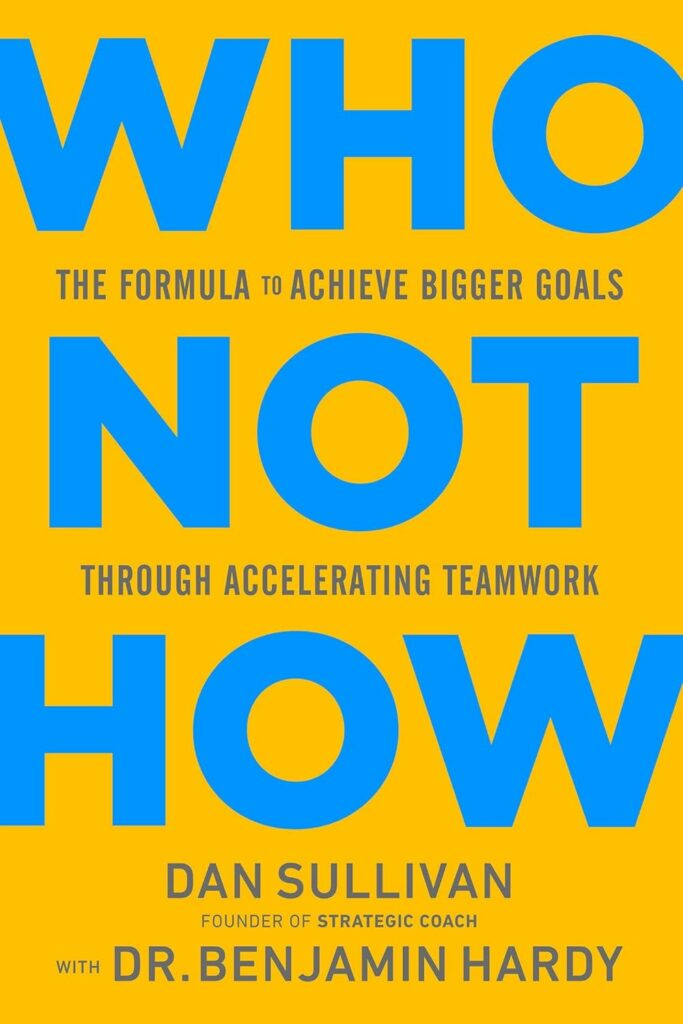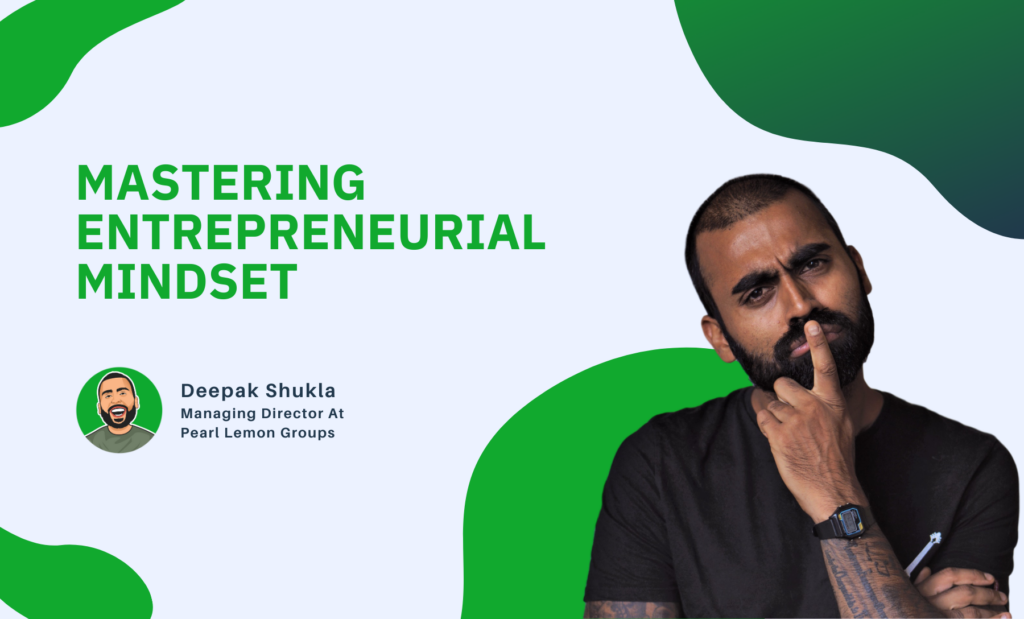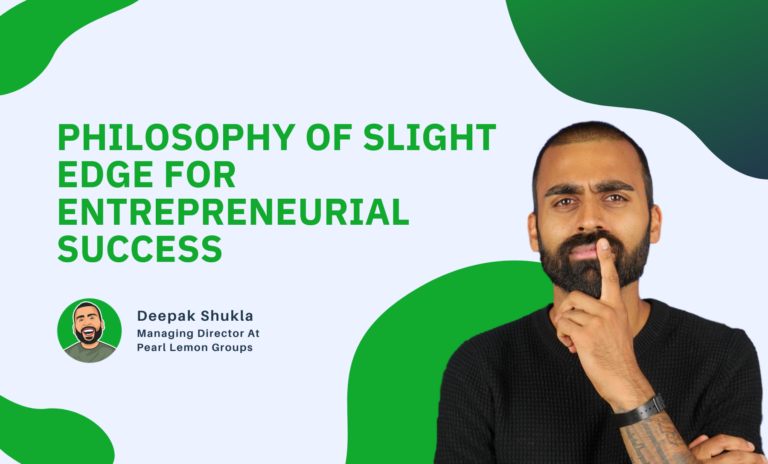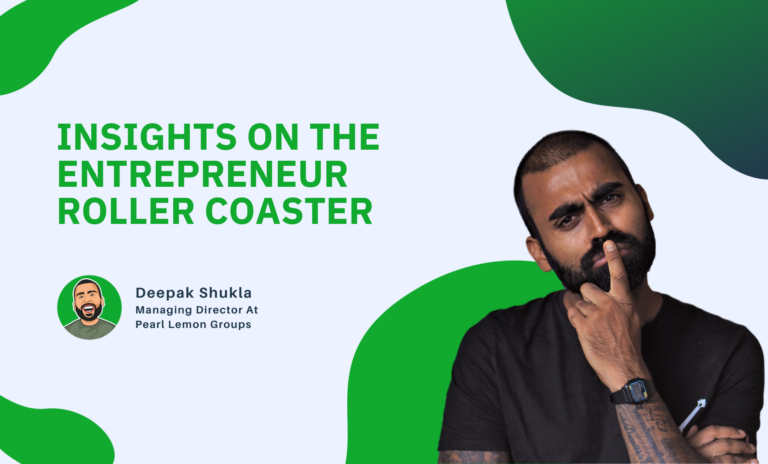Mastering Entrepreneurial Mindset: Insights from “Who Not How” by Benjamin Hardy and Dan Sullivan
Introduction
Hey, everyone!
Deepak Shukla here, and we’re back with another edition of Deepak’s Daily Reading.
Today, I want to delve into the world of entrepreneurial wisdom by discussing a book that truly hit home for me – “Who Not How,” a collaborative effort by Benjamin Hardy and Dan Sullivan.
This book explores a fundamental concept every entrepreneur should grasp to achieve bigger and better goals.
The Definition Of Hell And The Importance Of “Who” 🔥
The book opens with a powerful statement: “The definition of hell is that on your last day on Earth, the person you are will meet the person you could have become.” 🌟
This profound idea underscores the importance of surrounding yourself with the right people or the right “who’s” in your entrepreneurial journey.
The central theme of “Who Not How” is the significance of getting the right people on board.
It’s about recognising that you can’t do everything yourself and that true growth and success come from collaborating with individuals who excel in areas where you may not.
In my entrepreneurial journey with Pearl Lemon, I’ve discovered that getting the right “who’s” involves balancing culture, work ethic, and the potential to learn and grow.
While many young, talented individuals in our team may not initially possess all the necessary skills, they are willing to learn and adapt.
This spirit of continuous improvement has been instrumental in our growth.
“Collaboration with the right ‘who’s’ empowers us to become who we are meant to be.” — Deepak Shukla 🚀

Building a Team of Exceptional Individuals 🤝
The book also echoes the sentiment that entrepreneurship often surfaces in a person’s teens.
It aligns with my experience as I embarked on my entrepreneurial journey in my early teens, driven by my passion for music and creativity.
One of the book’s core messages revolves around the desire for freedom of time—an aspiration that resonates deeply with entrepreneurs.
The ability to control your time and focus on what truly matters drives many of us.
At Pearl Lemon, we’ve embraced this concept by fostering a remote work culture that allows team members to manage their time efficiently while delivering exceptional results.

Embracing Cross-Functionality for Mastery 🔄
While “Who Not How” emphasises the value of specialisation, my entrepreneurial philosophy leans towards cross-functionality and the pursuit of mastery in multiple disciplines.
We can achieve high competency across various domains by embracing a wide range of skills and continuously educating ourselves.
In the entrepreneurial landscape, the fundamentals often yield the most significant leverage.
Whether in fitness, business, or any other field, true progress begins when adhering to core principles.
While specialisation has its merits, the ability to integrate knowledge from different areas and apply it effectively sets us on the path to mastery.
Conclusion
As we wrap up this discussion on “Who Not How” by Benjamin Hardy and Dan Sullivan, remember that entrepreneurship is a journey of growth, collaboration, and continuous learning.
Surround yourself with the right people, value your time, and strive for mastery, whether it’s in your core expertise or across multiple disciplines.
“In the world of entrepreneurship, finding the right ‘who’ can be the key to unlocking your full potential.” — Deepak Shukla 🚀📚
So, until our next reading adventure, keep seeking knowledge, collaborating with the right people, and building a brighter entrepreneurial future. Thanks for joining me today. 🌟🤝
Key Takeaways from “Mastering Entrepreneurial Mindset: Insights from ‘Who Not How’
- Profound Opening Message: The definition of personal hell is when the person you are meets the person you could have become. This emphasises the importance of living up to one’s potential.
- Central Theme – The Importance of “Who”: Rather than focusing on “how” to do something, prioritise finding the “who” – the right individuals or teams that can make the desired outcome possible.
- Collaboration Over Individual Effort: True entrepreneurial success is not about doing everything yourself. It’s about recognising areas of weakness and collaborating with those who excel in those areas.
- Cultural Fit & Growth Mindset: In building a team, it’s essential to balance culture, work ethic, and growth potential. A team member’s willingness to learn and adapt can be more valuable than their current skill set.
- Entrepreneurship Can Begin Young: Many entrepreneurial spirits are kindled during teenage years, driven by various passions.
- Value of Time in Entrepreneurship: One of the core desires of entrepreneurs is the freedom of time. Having control over one’s time and prioritising crucial tasks can make a significant difference in achieving success.
- Embracing Remote Work: Flexible work cultures, like remote work, can be beneficial. They allow team members to manage their time better and often result in enhanced productivity.
- The Merits of Cross-Functionality: While specialisation is crucial, there’s undeniable value in cross-functionality. Mastering multiple disciplines and integrating knowledge from different areas can make businesses successful.
- Sticking to Fundamentals: In any venture – fitness, business, or other fields – adhering to foundational principles often yields the most substantial results.
- Entrepreneurship as a Continuous Learning Journey: Always look for opportunities to grow, collaborate, and learn. Surrounding yourself with the right individuals is key to unlocking maximum potential.

Book Summary Of “Who Not How” by Benjamin Hardy and Dan Sullivan
“Who Not How” by Benjamin Hardy and Dan Sullivan presents a transformative approach to achieving one’s goals and ambitions. Instead of asking, “How can I do this?” the authors encourage readers to ask, “Who can help me achieve this?” This shift from a solo mindset to a collaborative one underlines the importance of leveraging the strengths of others. Recognising that no one can be an expert in everything, Hardy and Sullivan argue that true progress and success come not from stretching oneself thin but from partnering with individuals who excel in areas we don’t. The book emphasises that the key to exponential growth and achievement lies in focusing on strengths and finding the right collaborators for other tasks. This methodology empowers readers to achieve more with less stress and effort.



